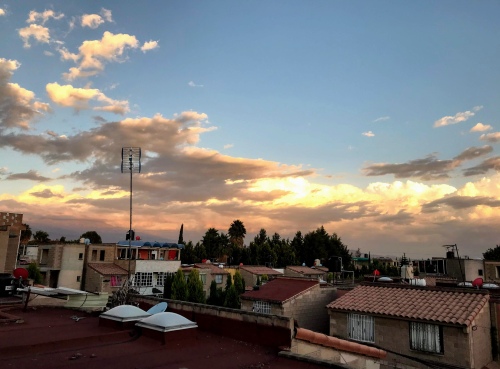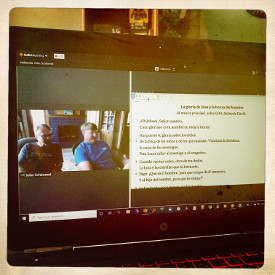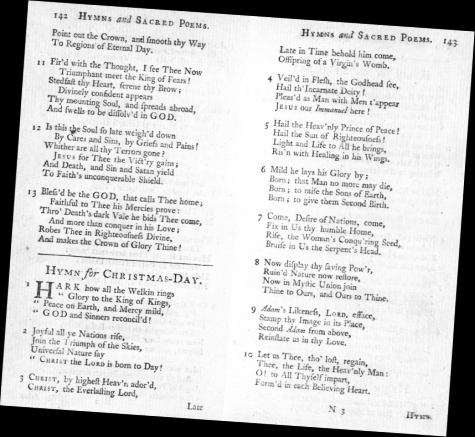Reflections on Daniel
When we decided to study the book of Daniel late last year, we had no idea what was coming. I mean, in the world in 2020. This coming Sunday, we’ll be finishing our study.

But let me say, Daniel has been such an appropriate book to be meditating on!
I know, I know . . . it’s quite possible that I would say that about any book of the Bible. But of course God did know that we would be studying Daniel this year.
So I thought I’d just briefly share some of the things that this book has especially highlighted for me over the past few months.
(1) The Sovereignty of God. If you could encapsulate the entire book into one word, I’m not sure you could find a better one than “Sovereign”. Nebuchadnezzar said it well:
…his dominion is an everlasting dominion,
Daniel 4:34-35
and his kingdom endures from generation to generation;
all the inhabitants of the earth are accounted as nothing,
and he does according to his will among the host of heaven
and among the inhabitants of the earth;
and none can stay his hand
or say to him, “What have you done?â€
Daniel put it this way:
He changes times and seasons;
Daniel 2:21
he removes kings and sets up kings;
he gives wisdom to the wise
and knowledge to those who have understanding
More than ever we look at the world and wonder who will be in power tomorrow. Or we wonder why governments do what they do. Governments may “rage and plot” against God and His Messiah (Psalm 2:1), but in the end it is God who controls the rise and fall of nations and their leaders. Down to the last detail.
Daniel himself seems to watch in horror as he sees the history of the future in the prophecies God gives him, finally saying, “O my lord, what shall be the outcome of these things?” (Daniel 12:8) But however we may feel about it, God continues to do what He wants in the history of the world. He is never surprised, He is never out of control.
(2) The power of the slave. Sadly, slavery still exists in much of the world today. In Daniel, by the power of God, a young slave in a foreign land has influenced empires and generations of people. Weak in himself, Daniel is now remembered as one of the most righteous people who ever lived (Ezekiel 14:14), and God chose him to give us a glimpse into an eternal plan.
(3) Faithfulness here and now. We must be faithful where God has placed us. That is, the place that He has ordained we live in, and the moment of history. Like the three young men who would not worship the king’s statue, we don’t know what God will do. But it is our calling to continue to do what’s right.
…O Nebuchadnezzar, we have no need to answer you in this matter. If this be so, our God whom we serve is able to deliver us from the burning fiery furnace, and he will deliver us out of your hand, O king. But if not, be it known to you, O king, that we will not serve your gods or worship the golden image that you have set up.
Daniel 3:16-18
Of course, sometimes it’s not easy to know what we should do. And we don’t always understand what’s going on around us (Daniel more than once confessed that he didn’t understand the visions he saw!). But maybe there are times when we should set aside our speculation about what might happen next, and just be faithful now.
(4) The purpose of suffering. There are at least two purposes, actually. For the wicked, suffering is the beginning of a terrible judgement (Daniel 12:2). But for “the wise”, it is the means of their purification. Trials may be terrible, but they are temporary, and they have a purpose.
…some of the wise shall stumble, so that they may be refined, purified, and made white, until the time of the end, for it still awaits the appointed time.
Daniel 11:35
Many shall purify themselves and make themselves white and be refined, but the wicked shall act wickedly. And none of the wicked shall understand, but those who are wise shall understand.
Daniel 12:10
(5) Deliverance is coming. Or maybe better to say, “My Deliverer is Coming”.
Daniel’s visions take him right up to the most terrible time ever – “there shall be a time of trouble, such as never has been since there was a nation till that time” (Daniel 12:1). The exhausted prophet has seen many horrors in his visions, and now he sees this. But close by the time of trouble is the time of deliverance.
The great Blasphemer will be destroyed, and the saints will receive the kingdom.
But the court shall sit in judgment,
Daniel 7:26-27
and his dominion shall be taken away,
to be consumed and destroyed to the end.
And the kingdom and the dominion
and the greatness of the kingdoms under the whole heaven
shall be given to the people of the saints of the Most High;
his kingdom shall be an everlasting kingdom,
and all dominions shall serve and obey him.
…there shall be a time of trouble, such as never has been since there was a nation till that time. But at that time your people shall be delivered, everyone whose name shall be found written in the book. And many of those who sleep in the dust of the earth shall awake, some to everlasting life, and some to shame and everlasting contempt. And those who are wise shall shine like the brightness of the sky above; and those who turn many to righteousness, like the stars forever and ever.
Daniel 12:1-3
But it is perhaps the middle of the book that has contains greatest revelation. Daniel had just seen the gnawing, grasping beasts of the Gentile empires, present and future, and finally the “little horn” who blasphemes God and persecutes the saints. But though pagan empires rise and fall, a very different empire is coming.
I saw in the night visions,
Daniel 7:13-14
and behold, with the clouds of heaven
there came one like a son of man,
and he came to the Ancient of Days
and was presented before him.
And to him was given dominion
and glory and a kingdom,
that all peoples, nations, and languages
should serve him;
his dominion is an everlasting dominion,
which shall not pass away,
and his kingdom one
that shall not be destroyed.
The Son of Man is coming to rule. There is no doubt. It’s not a “spiritual coming” but a physical coming, in time. The harassment of the saints is real, and will become worse at “the time of the end”, but it will end. And they will receive a kingdom – better – they will receive a king. The King is coming.






